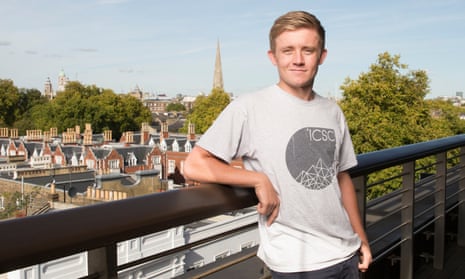Examining images and data is time-consuming and relies on the judgement and skills of highly specialised experts. Here, artificial intelligence (AI) – or deep learning – can save vast amounts of time and give much more accurate results. We’re using deep learning to try and improve cancer diagnosis, as well as accelerate the search for new drugs against cancer.
Using AI, a system can look at a tumour biopsy and diagnose what type it is. Algorithms generally give a more accurate diagnosis, as they are unbiased and can pick up on subtle features that are often really difficult to spot with the human eye. As well as exploring how AI can be used in diagnosis, we’re also using it to speed up the search for new treatments. When trying to find new drugs, researchers typically must process and search thousands of images, which can take months of work. With these new techniques, we will potentially be able to get results in a day or two.
I started by studying biochemistry at undergraduate level and went straight into research after my degree. I’d been to an inspirational talk about the potential of AI and I was hooked. Although I didn’t really know much about it, when I saw this research position advertised, I jumped at it.
I’ve always loved maths and computer programming as a hobby – I used to try and make my own computer games. Now this project has allowed me to take a quantitative approach to studying biological systems, my research is cross-disciplinary. Many researchers are beginning to enter the field of AI – you don’t have to be a thoroughbred mathematician. But you need a good understanding of how to use AI to solve problems.
Recently I’ve been over in Toronto with a view to helping found a new startup. We’re at the early stages, but using this technology we want to automate the analysis of biomedical images, whether it’s for assessing drug effects or diagnosing cancer. We’re initially focused on automating parts of the drug discovery process.
Scientists have been looking into the potential of deep learning for years – you get the sense that we’re on the verge of scientific breakthroughs linked to the technology and there seems to be a lot of investment and interest in the field.
There are really good things happening around research into cancer – there’s a chance to make a real difference. I believe we could see the end of cancer in our lifetime.
Sam Cooper, 24, is in the final year of his PhD in cancer research at the Institute of Cancer Research and Imperial College, partly funded by Stand Up To Cancer, a joint national fundraising campaign from Cancer Research UK/Channel 4.
